I read on FB that Tony Kinman is very ill.
I don’t know many details. But it’s a sad thing.
(NOTE: I’ve just seen on Chip Kinman’s FB page the news that Tony Kinman died this morning, apparently at his home in the San Diego area. A very sad day.)
Amid a culture where people on either side of politics are pushed to toe some kind of social-media enforced line, where everyone avidly looks to be offended, and where we all seem to be thin skinned, a spirit like Tony Kinman matters.
He began as a bass player from San Diego who, along with his brother Chip, formed one of the great musical duos in 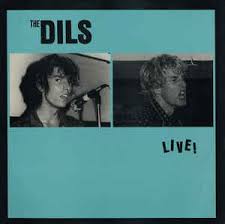 alternative rocknroll in this country. They started in punk rock, forming The Dils, which was the best punk band at least on the West Coast. Frenetic, blasting, fast. I coveted the 45 of I Hate the Rich and still have Class War and then Sound of the Rain.
alternative rocknroll in this country. They started in punk rock, forming The Dils, which was the best punk band at least on the West Coast. Frenetic, blasting, fast. I coveted the 45 of I Hate the Rich and still have Class War and then Sound of the Rain.
Their voices blended perfectly – Tony with his baritone and a mop of dark hair, Chip, blond, with his high tenor. The punk Everly Brothers.
Beyond that, though, they hadn’t much but their gumption, rocknroll spirit, work ethic, and cheap sneakers, which was enough to keep them going for years.
Tony Kinman never made it big — never a music-industry star. The Kinman boys weren’t noble, starving artists — forget that — but my guess is they just wanted to create something of their own more than they wanted the cash. Each band they formed seemed to directly alienate the fans of the previous band. (Great interview here with Chip Kinman.)
They formed Rank and File, a country band with a punk flavor and moved to Austin. Tony’s baritone was spectacular on Conductor Wore Black and Sundown.
Later, they did electronica – Blackbird – and then moved on to Cowboy Nation, a folk duo playing old cowboy songs on acoustic guitar and bass.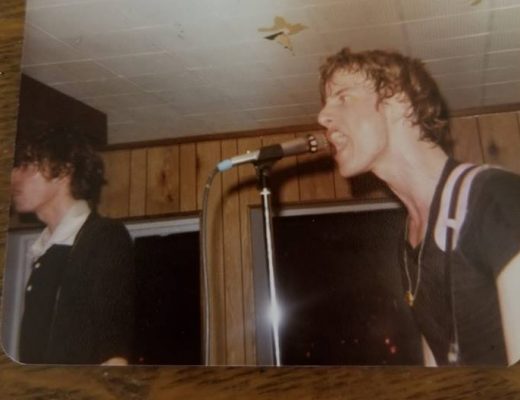
I can’t say I know Tony Kinman. I met him and his brother once in 1980 when I hired them to play a party at Barrington Hall, a co-op at UC Berkeley where I was living and which was known for that kind of party. I drove to San Francisco in a co-op truck and loaded up The Dils and their equipment and then drove them back later that night. All that I have from that night is this photo from my friend Joanne.
But the Kinman boys have been part of the constellation of influences important in my life.
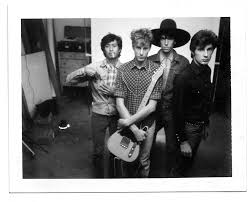 In my hometown of Claremont, California, many guys I grew up with played guitar; so did I, though not well. In high school in the 1970s, to me, rocknroll mattered. By then, though, it had grown bloated, pompous. Bands sang about the tribulations of being famous and over-sexed. Some bands recorded rock operas about elves, gnomes and mountain kings. In order to play any of it, we were told that we needed columns of expensive amps and we had to play a million notes a minute. Shows were in baseball stadiums, not in sweaty dark clubs.
In my hometown of Claremont, California, many guys I grew up with played guitar; so did I, though not well. In high school in the 1970s, to me, rocknroll mattered. By then, though, it had grown bloated, pompous. Bands sang about the tribulations of being famous and over-sexed. Some bands recorded rock operas about elves, gnomes and mountain kings. In order to play any of it, we were told that we needed columns of expensive amps and we had to play a million notes a minute. Shows were in baseball stadiums, not in sweaty dark clubs.
Then punk rock came along and burned away all that crap and rock was again, for a moment, distilled to its urgent essentials. Three chords, two minutes, and you were done. Don’t ask permission to play – just get up there. Record your own 45 and put it out and sell it yourself. Put out your own fanzine. Organize your own shows. Don’t wait for anointing from some record company.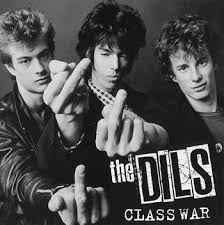
Soon punk rock became a style in which clothing companies charged a lot of money to make you look like you lived in a Skid Row wino hotel.
Really, though, punk rock wasn’t about leather jackets. It was an approach to life. Just do it: that was a real, pure American idea. Then Nike admen bought those words and turned them into a slogan.
Before that, though, that attitude was so healthy for a young American to hear. It was an important way to live and, to me, it grew from punk rock.
I adopted it as, in adulthood, I veered toward journalism and writing. I took jobs 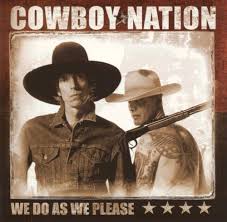 where I thought I could do exciting work and not wear a tie. So I covered crack, gangs and crime in Stockton, California. Then wanting to be a foreign correspondent but not wanting to ask permission from some newspaper, I moved to Mexico, where, as things turned out, I became a freelance writer.
where I thought I could do exciting work and not wear a tie. So I covered crack, gangs and crime in Stockton, California. Then wanting to be a foreign correspondent but not wanting to ask permission from some newspaper, I moved to Mexico, where, as things turned out, I became a freelance writer.
I spent 10 years wandering the country alone, finding stories and selling them to media in the states, feeling this was my calling — this was punk rock.
I wrote a lot about immigrants, trudging north, trusting only in their wits, gumption, work ethic and cheap sneakers, and I knew they were punk rock as well. The best idea of America, coming up, raw and ragged, from Mexico.
I was offered jobs at news services and turned them down. It was a lot of money but I’d have to heed the orders of some editor in New York and not follow my own gut and eye, and this seemed a recipe for an unhappy life. I’m no noble, starving artist. Forget that. I just wanted a life of my own design. To do the stories I knew were important.
Along the way, I watched Tony and Chip Kinman, who best embodied what punk rock was to me, as they excavated American music in their own way.
Even when what they created didn’t always hit home the way The Dils or Rank and File did. Black Bird never quite worked for me, but I loved that they did it because it was them not being easily boxed.
Then they put out Cowboy Nation and I played the hell out of that. Streets of Laredo, Shenandoah, and the best song on the album, My Rifle, My Pony and Me. We Do As We Please is a great summation of the American spirit.
I remember I was thrilled when they somehow contacted me to get a copy of my first book.
I’ve noticed that Chip Kinman has continued on with his take on American blues – in a band called Ford Madox Ford, which is raunchy and raw and that’s the way great American music should be.
a band called Ford Madox Ford, which is raunchy and raw and that’s the way great American music should be.
So I’m hoping the best for Tony Kinman, his brother, his family and his close friends.
The world can still use people who shape lives of their own design – maybe now more than ever.
(Photos: I’ll admit I just took these photos off the internet. If they’re yours, let me know and I’ll take them down.)


